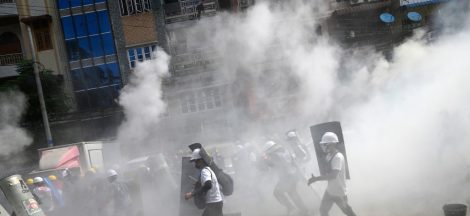SOE infrastructure development drives RI’s economy. Massive infrastructure projects by state-owned enterprises (SOEs) have helped Indonesia improve its logistical performance, although the country still lags behind neighboring countries such as Singapore, Malaysia and Thailand.

Under President Joko “Jokowi” Widodo administration, SOEs have in the past four years boosted their participation in infrastructure development to improve connectivity between land, air and sea. This year,1,794 kilometers of toll roads will be constructed, up from 1,254 km in the nine months of 2018.
“SOEs play a role as the agents of development, but they don’t necessarily have to lose money,” said Aloysius Kiik Ro, the SOE Ministry’s deputy for business restructuring and development.
So far, the trans-Java toll road, which spans from Merak Port in Banten to Surabaya in East Java, has been completed, reducing travel time by car from 14 hours to nine hours, he said.
In addition to shortening travel times and reducing logistics costs, the new toll roads also help open new job opportunities and drive economic activities.
Besides the trans-Java toll road, state-owned company Hutama Karya has been involved in the development of the trans-Sumatra toll road that spans from Aceh in the western tip of Sumatra to Bandar Lampung in the east. Some 2,700 km in length, it required a total investment of Rp250 trillion (US$17.79 billion).
Hutama Karya president director Bintang Perbowo has said that this year, the company will allocate Rp 40 trillion for toll road construction. All the financing will be sourced from bank loans.
“The trans-Sumatra toll road, which is part of the Bakauheni-Palembang route, will be completed hopefully before the Idul Fitri holiday. The toll road can reduce travel time from 12 hours to six hours,” he said.
In addition to toll roads, the government has built 27 new commercial ports since 2015 to improve sea connectivity, as well as seven new airports in 2015-2017.
From year to year, the government increased infrastructure spending from Rp388.3 trillion 2017 to Rp410.7 trillion in 2018 and Rp415 trillion in 2019, according to the 2019 state budget.
According to the Logistics Performance Index (LPI) released by the World Bank, Indonesia climbed 17 spots from the 63rd position in 2016 to 46th in 2018. The LPI measures a country’s logistics supply chain.
Despite the improvement, Indonesia still lags behind its neighboring countries; Singapore ranked seventh, Thailand 32nd, Vietnam 39th and Malaysia 41st in 2018.
Infrastructure development plays a crucial role in boosting Indonesia’s competitiveness in the region. But observers have pointed out that the effort cannot be made by SOEs alone, because the projects have to be financed by many alternative sources, partly by bank loans from state-owned banks.
According to Bank Negara Indonesia (BNI) risk management director Bob Tyasika Ananta, state-owned banks disbursed Rp330.2 trillion in loans for infrastructure projects in 2018. They included Rp 182.3 trillion from Bank Mandiri, Rp110.6 trillion from Bank BNI and Rp37.3 trillion from Bank BRI.
However, the contribution from state-owned banks are not enough to finance massive infrastructure projects and banks have limitations. The challenges that banks are facing include the discrepancy between their ability to provide funds and infrastructure financing needs, which are normally long term or more than 10 years on average.
Responding to these challenges, Aloysius said the government has called on SOEs to find alternative sources of funding, such as cross-border securitization and the issuance of green bonds. SOE infrastructure development drives RI’s economy (Winny Tang, The Jakarta Post)






 State Companies Tighten Monitoring to Ensure Product Quality
State Companies Tighten Monitoring to Ensure Product Quality 